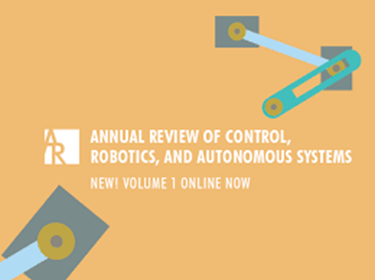社会机器人伦理:个人和社会的关注和机会
IF 14
1区 计算机科学
Q1 AUTOMATION & CONTROL SYSTEMS
Annual Review of Control Robotics and Autonomous Systems
Pub Date : 2023-10-23
DOI:10.1146/annurev-control-062023-082238
引用次数: 0
摘要
对特定技术伦理的关注往往远远落后于其发展。这种滞后在人工智能的情况下尤为严重,人工智能在广泛领域的加速部署引发了对整个社会的风险和后果的前所未有的关注,导致了无数的道德法规,这些法规由于出现较晚而难以协调和整合。社交机器人的本质迫使它们的部署以慢得多的速度进行,这为对伦理的深刻反思提供了机会,这种反思已经在多学科团队中发生了。本文以社会机器人的特殊性为中心,提供了个人对伦理景观的看法,主要问题沿着两个轴(个人和社会)排序,并分为八个类别(人类尊严,人类自主性,机器人透明度,情感联系,隐私和安全,正义,自由和责任)。这种结构源于开发和教授一门关于社会机器人伦理的大学课程的经验,该课程的教学材料是免费的。预计《控制、机器人和自主系统年度评论》第七卷的最终在线出版日期是2024年5月。修订后的估计数请参阅http://www.annualreviews.org/page/journal/pubdates。本文章由计算机程序翻译,如有差异,请以英文原文为准。
Ethics of Social Robotics: Individual and Societal Concerns and Opportunities
Focus on the ethics of a given technology tends to lag far behind its development. This lag has been particularly acute in the case of artificial intelligence, whose accelerated deployment in a wide range of domains has triggered unprecedented attention on the risks and consequences for society at large, leading to a myriad of ethics regulations, which are difficult to coordinate and integrate due to their late appearance. The very nature of social robots forces their deployment to occur at a much slower pace, providing an opportunity for a profound reflection on ethics, which is already happening in multidisciplinary teams. This article provides a personal view of the ethics landscape, centered on the particularities of social robotics, with the main issues being ordered along two axes (individual and societal) and grouped into eight categories (human dignity, human autonomy, robot transparency, emotional bonding, privacy and safety, justice, freedom, and responsibility). This structure stems from the experience of developing and teaching a university course on ethics in social robotics, whose pedagogical materials are freely available. Expected final online publication date for the Annual Review of Control, Robotics, and Autonomous Systems, Volume 7 is May 2024. Please see http://www.annualreviews.org/page/journal/pubdates for revised estimates.
求助全文
通过发布文献求助,成功后即可免费获取论文全文。
去求助
来源期刊
CiteScore
28.30
自引率
2.20%
发文量
25
期刊介绍:
The Annual Review of Control, Robotics, and Autonomous Systems offers comprehensive reviews on theoretical and applied developments influencing autonomous and semiautonomous systems engineering. Major areas covered include control, robotics, mechanics, optimization, communication, information theory, machine learning, computing, and signal processing. The journal extends its reach beyond engineering to intersect with fields like biology, neuroscience, and human behavioral sciences. The current volume has transitioned to open access through the Subscribe to Open program, with all articles published under a CC BY license.

 求助内容:
求助内容: 应助结果提醒方式:
应助结果提醒方式:


